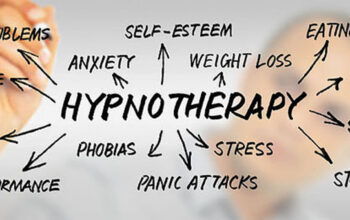In the interconnected world of the 21st century, translation extends far beyond mere linguistic conversion; it serves as a critical conduit for global interaction, understanding, and cooperation. The role of translation in shaping global affairs cannot be overstated—whether in diplomacy, international business, cultural exchange, or crisis response, translation is pivotal. This article explores the profound impact of translation on global affairs, illustrating how it transcends words to forge connections, bridge cultural divides, and facilitate dialogue on the world stage.
Facilitating International Diplomacy and Peacekeeping
Translation plays a foundational role in international diplomacy, where clear and precise communication is essential for negotiations, treaties, and diplomatic relations.
Negotiations and Treaties
Accurate translation ensures that all parties in international negotiations understand the terms, intentions, and nuances of discussions, preventing misunderstandings that could lead to conflicts. In treaty-making, translation’s accuracy is paramount, as the language employed must precisely reflect the commitments and obligations agreed upon.
Peacekeeping and International Relations
In peacekeeping missions, translators and interpreters are on the front lines, facilitating communication between diverse groups and aiding in conflict resolution efforts. Their work supports the maintenance of peace and the rebuilding of communities post-conflict, showcasing the direct impact of translation on global stability.
Enabling International Business and Trade
The globalization of markets has necessitated the translation of documents, websites, and marketing materials, allowing businesses to reach a wider audience and operate across borders.
Market Expansion
Translation services enable businesses to adapt their products and services to new markets, considering not just language but cultural preferences and practices. This localization process is crucial for the success of international marketing strategies and customer engagement.
Legal and Financial Documentation
For companies operating internationally, legal and financial documents must be accurately translated to ensure compliance with local laws and regulations. This includes contracts, terms and conditions, privacy policies, and financial reports, highlighting translation’s role in facilitating international commerce and protecting businesses legally.
Promoting Cultural Exchange and Understanding
Translation bridges cultures, allowing for the exchange of literature, art, and ideas. It enriches the global cultural landscape by providing access to diverse perspectives and expressions.
Literature and Arts
Translated works of literature, film, and art introduce audiences to the stories and expressions of distant cultures, fostering a global dialogue and mutual appreciation. This cultural exchange broadens horizons and deepens understanding across communities.
Academic and Scientific Collaboration
In academia and science, translation is crucial for the dissemination of knowledge and collaborative research. It enables scholars and scientists to access and contribute to the global body of knowledge, regardless of the language of origin, accelerating innovation and progress.
Addressing Global Challenges Through Multilingual Communication
In times of crisis, such as natural disasters, pandemics, or humanitarian emergencies, translation services become lifelines, facilitating critical information flow and aid distribution.
Crisis Response and Aid Distribution
Rapid and accurate translation of warnings, instructions, and information about aid distribution can save lives in crisis situations. Multilingual communication ensures that non-native speakers are not left vulnerable due to language barriers.
Health Information and Pandemic Response
The COVID-19 pandemic underscored the importance of translating health guidelines into multiple languages quickly. This ensured wide-reaching public understanding of safety measures, demonstrating how translation directly impacts public health outcomes on a global scale.
Overcoming Challenges in Global Translation Efforts
Despite its significance, the field of translation faces challenges, particularly in maintaining accuracy, nuance, and cultural sensitivity across diverse linguistic landscapes.
Quality and Nuance
Ensuring high-quality, nuanced translations that accurately convey original meanings and cultural subtleties remains a challenge, requiring skilled translators and rigorous quality control processes.
Access and Equity
Ensuring equitable access to translation services across all languages, especially less widely spoken ones, is crucial for truly global communication. This involves both technological solutions, like machine translation improvements, and human efforts to cover a broad linguistic spectrum.
The Future of Translation in Global Affairs
As the world becomes increasingly globalized, the demand for translation and interpretation services is expected to grow, driven by advances in technology, increasing multilingual communication needs, and the continuous push for international cooperation.
Technological Advances
Advancements in artificial intelligence and machine learning are enhancing the capabilities of machine translation tools, offering potential for more accurate and instantaneous translations across a wider array of languages.
Human Expertise
Despite technological progress, the nuanced understanding and cultural competence of human translators remain irreplaceable, particularly in high-stakes diplomatic, legal, and cultural contexts.
Conclusion
Translation is an indispensable tool in the fabric of global affairs, serving as a bridge that connects worlds through the power of language. Its impact extends far beyond the conversion of text, affecting international diplomacy, business, cultural exchange, and the collective response to global challenges.
As we move forward, the integration of technological advancements with the irreplaceable skills of human translators will continue to facilitate seamless communication, deepen mutual understanding, and foster cooperation across the globe’s rich tapestry of languages.



